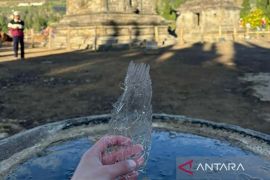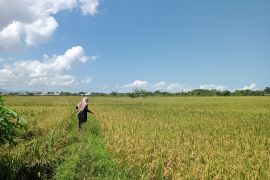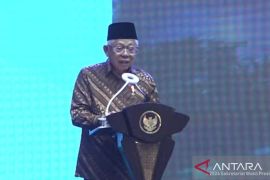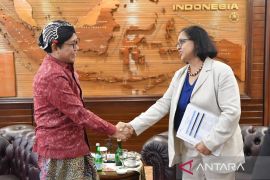The researchers belong to the University of Indonesia (UI), Gadjah Mada University (UGM), the University of Technology Sydney (UTS), and the Center for Regulation Policy and Governance (CRPG).
UI researchers Cindy Rianti Priadi and Sucipta Laksono were involved in the research project that contributed to the creation of PAMSIMAS.
Speaking in Depok, West Java, on Monday, Laksono said that human life has begun getting affected by the real impacts of climate change. Therefore, concrete actions to address the impacts are needed.
In this regard, he highlighted the necessity of steps such as ensuring sources of water reservoirs, material adjustments, pipes, and pumps.
During a recent presentation on the PAMSIMAS, he said that the researchers have also devised a monitoring device called the Rural Water Supply Climate-Resilient Monitoring Tool (RWS-CRMT).
The RWS-CRMT, which was developed from September 2023 to May 2024, can assess the resilience of rural water supply against climate change, Laksono informed.
The monitoring device has been tested by 100 drinking water supply and sanitation facility-managing groups (KPSPAMS) in 14 provinces of Indonesia.
The provinces include Central Java, Gorontalo, South Sulawesi, West Nusa Tenggara, West Sumatra, Yogyakarta, West Java, Riau, Lampung, West Kalimantan, East Nusa Tenggara, South Sumatra, South Kalimantan, and East Kalimantan, he said.
To have climate resilience and script an economic transformation, Indonesia must have a productive and healthy population, he added.
In this respect, clean water supply is undoubtedly significant for Indonesia, Laksono opined.
Due to the significance of water sustainability for human life, Indonesia recently hosted the 10th World Water Forum in Bali with the theme "Water for Shared Prosperity."
WWF participants discussed crucial issues such as water for humans and nature; water security and prosperity; disaster risk reduction and mitigation; governance cooperation and hydro diplomacy; sustainable water finance; and knowledge and innovation.
Related news: Lake Batur in Bali among polluted lakes targeted for cleanup: Ministry
Related news: Examining chances for establishing a Global Water Fund in future
Translator: Feru L, Rahmad Nasution
Editor: Aditya Eko Sigit Wicaksono
Copyright © ANTARA 2024












